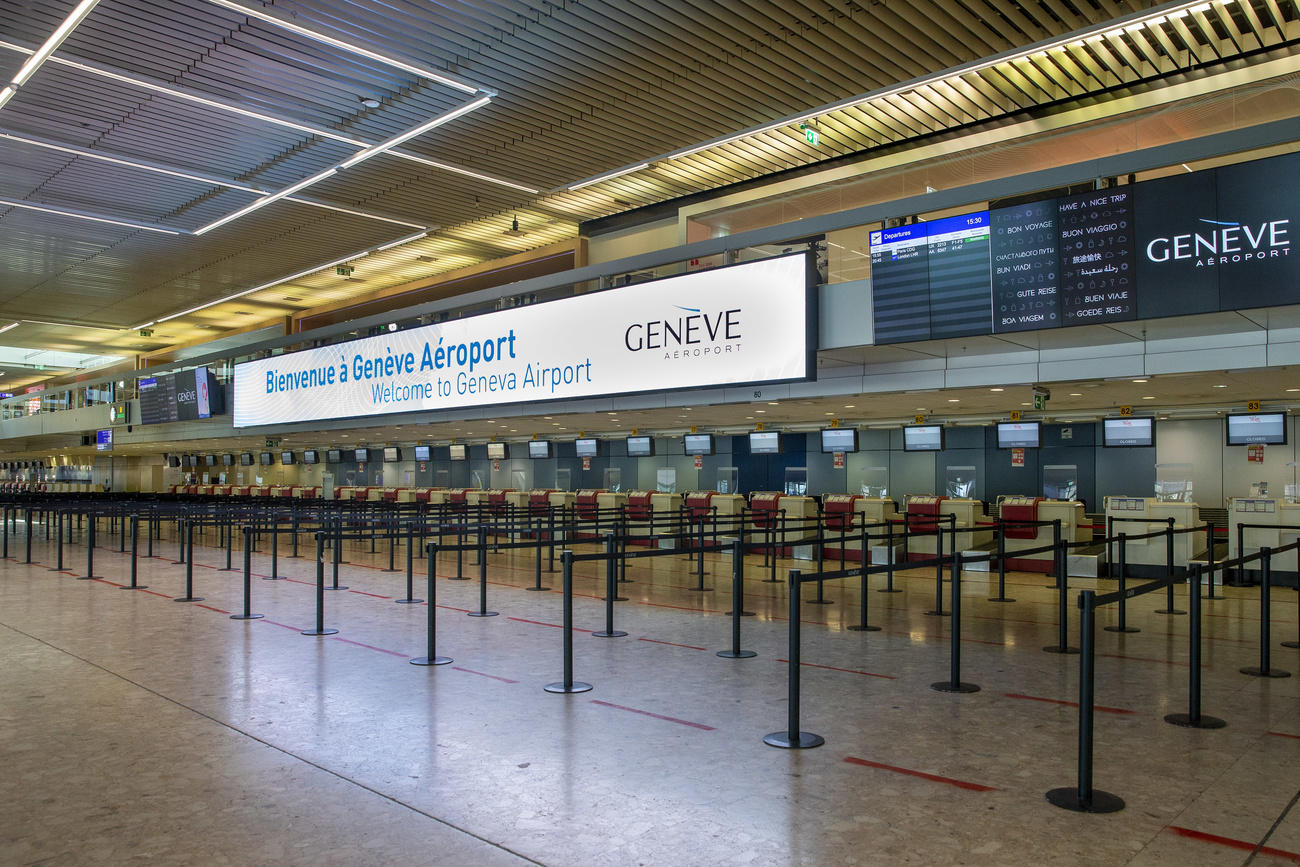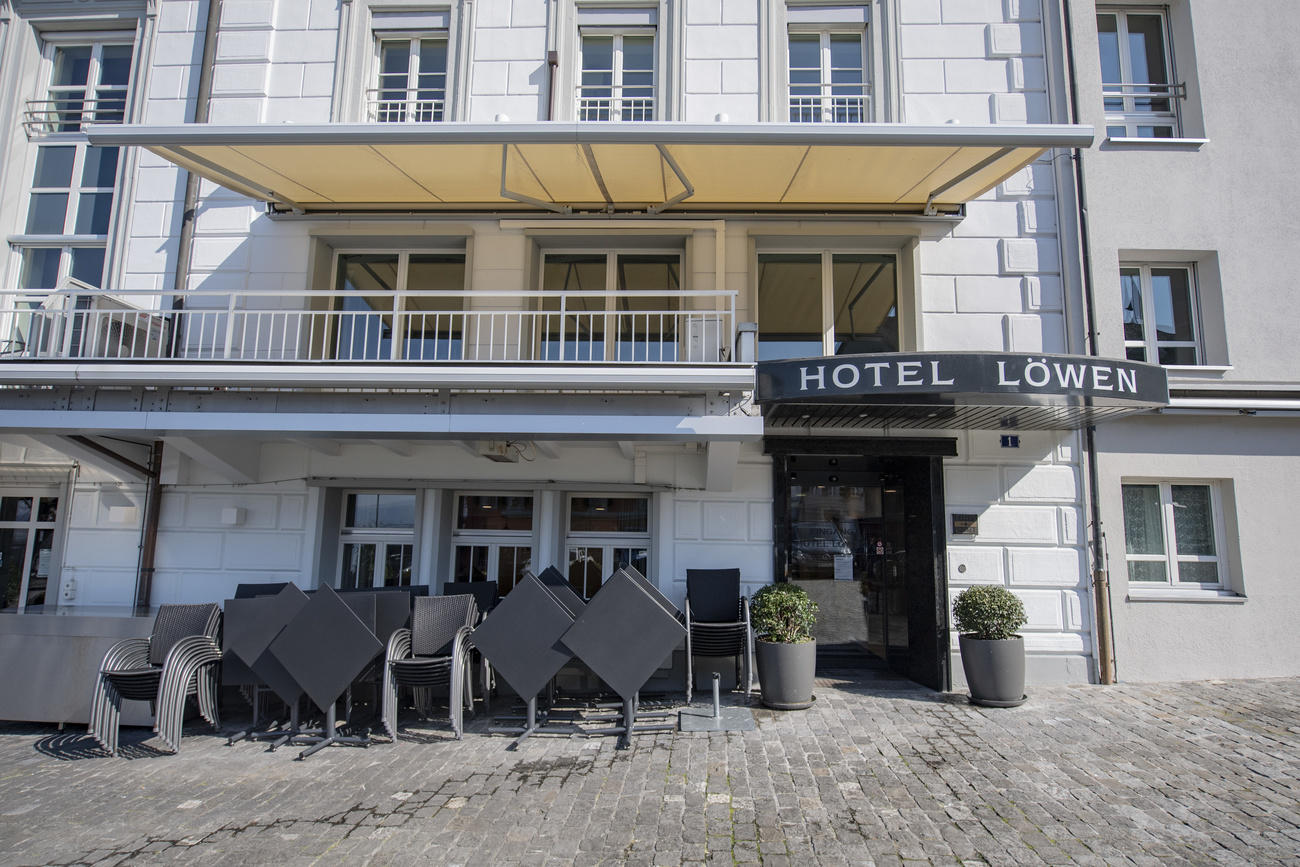Pandemic pushes more Swiss businesses to short-time working

In order to avoid mass lay-offs, Swiss companies are resorting to a measure that has proved its worth in times of crisis: short-time working. What is it?
Hotel and catering, transport, manufacturing, tourism – a variety of sectors are being hit hard by the pandemic owing to the closure of public institutions and non-essential businesses, but also border closures and restrictions on people’s movement. Swiss companies are seeing an alarming drop in revenue and are increasingly resorting to short-time workingExternal link to avoid redundancies.
What is short-time working?
In Switzerland, when a company finds itself in difficulty, it can temporarily reduce the working hours of its staff. The employees then work at a lower percentage and the employer pays a lower salary which is supplemented by unemployment insurance.
The employees are compensated with 80% of the loss of income. So if the company reduces the activity rate from 100% (full-time) to 50%, the company pays this 50% and the unemployment insurance fund covers 80% of the remaining 50%. The employee thus receives 90% of their initial salary. The unemployment fund pays its share to the employer, who uses this amount to pay the wages of the employees.
The company can also cease operations completely for a certain period.
When can short-time working be used?
A drop in orders, a financial crisis or a pandemic can temporarily put a company in difficulty and cause it to lay off some staff – even though the company will need these employees again a few months later. The aim of short-time working is to safeguard jobs.
In order to benefit from this measure, the employer must notify the cantonal authorities ten days before the start of the reduction in working hours. The canton will then be able to check whether the measure is lawful and whether it is actually aimed at preserving jobs.
Who is entitled to short-time working?
Employees with an open-ended contract or a permanent job are eligible. Apprentices, temporary workers and employees with fixed-term contracts are not entitled to partial unemployment. They continue to receive their usual salary and cannot in principle be fired.
In order to introduce a reduction in working hours, the company must obtain the written consent of its employees. Everyone is free to refuse this measure and to continue to receive their usual income. However, the risk of dismissal is higher.
Short-time working has no influence on the duration of unemployment benefit. Employers and employees must also continue to pay their full social insurance contributions.
Can you resign or be fired during a period of short-time work?
Yes, the employment contract can be terminated at any time by observing the notice periods. The employer is then obliged to pay the full salary until the employee leaves.
Are the rules for short-time working different with Covid-19?
The Swiss government has decided to relax the requirements:
– The company can inform the canton immediately – it no longer has to wait ten days.
– The period allowed for applying short-time working has been extended from three to six months.

More
Report finds partial unemployment saves jobs in times of crisis
– Apprentices, temporary workers and employees with fixed-term contracts are also entitled to short-time working.
Are many companies resorting to short-time working because of the pandemic?
So far the Swiss authorities have received 1,17 million applications for short-time working, which represents almost 20% of the workforce.
Is short-time working really effective in times of crisis?
During the economic crisis of 2009, Swiss industry suffered greatly and 90,000 employees benefited from short-time working. An analysisExternal link carried out between 2009 and 2015 by the Swiss Economic Institute (KOF) showed that short-time working had a positive impact: it prevented lay-offs in the long term and let companies safeguard at least 10% of their jobs and retain valuable know-how. The cost of short-time working was largely offset by the savings made in ordinary unemployment insurance.
Do countries other than Switzerland use this tool?
Most industrialised countriesExternal link have short-time working mechanisms that were already widely used during the economic crisis of 2009. In this pandemic, more and more countries are making use of these mechanisms. Several countries, such as Switzerland, have relaxed the rulesExternal link, notably Germany, Italy, France and the Netherlands.

More
Coronavirus: the situation in Switzerland
(Translated from French by Thomas Stephens)

In compliance with the JTI standards
More: SWI swissinfo.ch certified by the Journalism Trust Initiative
















You can find an overview of ongoing debates with our journalists here . Please join us!
If you want to start a conversation about a topic raised in this article or want to report factual errors, email us at english@swissinfo.ch.